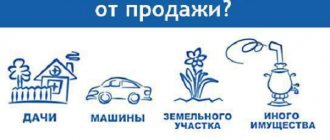Russian enterprises employ not only Russian citizens, but also foreign migrants. Legal employment requires the conclusion of an employment contract and the employer’s obligation to transfer established amounts to the budget and extra-budgetary funds. In this regard, it is worth finding out what taxes are imposed on foreigners in 2021, as well as clarifying the rates and procedure for paying insurance premiums.
Legal provisions
The labor activity of citizens of other countries is not considered arbitrary. It has completely legitimate justifications. 114-FZ dated August 15, 1996 spells out the rules for travel across Russian borders. It states here that after arriving without official permission, invitation or visa, a person must write down the purpose of employment on the migration card. If a foreigner enters on one of the visas, he will need to receive an invitation or the visa itself must be a special one - a work visa.
Another important law is No. 115-FZ of July 25, 2002. This provision provides information about foreigners and their status. At the same time, here you can study the peculiarities of employment in the Russian economy.
Taxes and contributions on the income of citizens of the EAEU member countries
In 2014, the Eurasian Economic Union (hereinafter referred to as the EAEU) was formed, which is confirmed by the relevant international treaty (hereinafter referred to as the Treaty on the EAEU). Initially, it included three countries - Russia, Belarus and Kazakhstan; later Kyrgyzstan and Armenia joined the alliance. The main goal was to create a unified economic zone in all respects. This applies to both border crossings and activities of citizens of member states throughout the EAEU.
Perhaps none of the above countries can blame Russia for its poor attitude towards migrants. Quite the contrary: foreign guests willingly cross Russian borders, sometimes even several times a day.
It is quite normal if a person lives near the border with Belarus and travels to a neighboring state, for example, to buy groceries. But citizens of Belarus go to Russia most often for a different purpose - to find a decent income.
Citizens of Kazakhstan also find our country very attractive in terms of employment. Some people come to get an education, during which time they manage to find a job and even take a few steps up the career ladder. But for some, the first challenge is finding a suitable vacancy.
The fourth country that shared the principles of unity of the EAEU was Armenia. Most Russians associate Armenians with representatives of trade. And I must say, quite reasonably: in every market there is a smiling representative of this sunny republic who will offer to buy sweet peaches/pears/apricots from him. In addition, many Armenian citizens operate as individual entrepreneurs and run small shops where you can buy almost anything.
Kyrgyzstan became the fifth and, to date, the last state to sign the international treaty. Migrants from this country also flock to Russia with the intention of finding work. Needless to say, the degree of competition has long since reached its maximum, because most often employers give preference to Russian applicants.
Employment algorithm
The general procedure for applying for a job varies significantly depending on the situation. Circumstances such as:
- Received official status;
- Arrival time.
The best option would be to hire citizens who have a temporary residence permit, residence permit, or those who have received refugee status. Another suitable candidate could be a person from the EAEU countries. It is quite simple to sign an agreement with this category of citizens. Within three working days, information about such employees is transmitted to special authorities that monitor employment.
In order to hire individuals who are nationals of “visa” countries, you need to obtain special permission to attract such specialists. The received invitation is sent to the applicant, after which he will need assistance in the visa application process.
Employment of citizens living in visa-free countries is accompanied by less hassle. They themselves receive the necessary documents, among which the patent deserves special attention.
How to pay personal income tax if a foreign worker works remotely
It can be beneficial for an employer to attract foreign citizens to remote work, especially from countries ─ republics of the former Soviet Union. In this case, remuneration for the performance of work for a Russian company by a foreign employee from another state refers to income received from sources outside the Russian Federation (subclause 6, clause 3, article 208 of the Tax Code of the Russian Federation).
If a remote foreign worker is not a tax resident of the Russian Federation, the employer does not need to withhold personal income tax from such payments (clause 1 of Article 207 of the Tax Code of the Russian Federation, Letter of the Ministry of Finance dated August 26, 2019 No. 03-04-05/65456).
Please note that it is safer to enter into a GPC agreement with a foreigner working remotely. The Ministry of Labor, for a number of reasons, opposes the conclusion of an employment contract in such a situation (Letter of the Ministry of Labor dated 08/07/2015 No. 17-3/B-410).
Registration of an employment agreement
Established legislative standards do not exempt from the need to comply with the requirements of the modern Labor Code of the Russian Federation. Invited employees are also not deprived of social protection.
Agreements concluded with foreigners must be drawn up with the understanding that the established provisions should not worsen the general working conditions of the employee.
Important! Regardless of citizenship, the requirements of the Labor Code of the Russian Federation must be complied with without fail.
This directly concerns the legal conditions in the process of signing fixed-term employment contracts. As judicial practice has shown, it is better for an employer to enter into contracts that do not have a time limit.
Payment of compensation to HQS upon dismissal. Is it possible to apply the benefit under clause 3 of Article 217 of the Tax Code of the Russian Federation?
As a general rule, in terms of personal income tax, there is a benefit provided for in clause 3 of Article 217 of the Tax Code of the Russian Federation. Thus, all types of compensation payments established by the legislation of the Russian Federation (within the limits established in accordance with the legislation of the Russian Federation), associated, in particular, with the dismissal of employees, are not subject to personal income tax, with the exception of compensation for unused vacation, and also with the exception of the amount of payments in the form severance pay, average monthly earnings for the period of employment, compensation to the manager, deputy managers and chief accountant of the organization in the amount exceeding in general three times the average monthly earnings or six times the average monthly earnings for workers dismissed from organizations located in the Far North and equivalent regions to their localities (clause 3 of Article 217 of the Tax Code of the Russian Federation). Amounts of the above payments upon dismissal that exceed three times the amount (six times the amount) of the average monthly earnings are subject to personal income tax in accordance with the established procedure.
In this regard, the question arises - what personal income tax rate is applied when paying compensation to a foreign employee - HQS upon dismissal? Is it possible not to tax these payments within the limits of three times the amount (six times the amount) of the average monthly earnings?
When a HQS is dismissed by agreement of the parties, compensation payments are not subject to personal income tax in the general manner. Upon dismissal of a HQS, by agreement of the parties, compensation payments are exempt from personal income tax. The amount not subject to personal income tax should not exceed, in general, three times the average monthly earnings. And for the regions of the Far North - six times the average monthly salary.
The Tax Code of the Russian Federation does not provide for any specifics for calculating personal income tax upon dismissal of a HQS.
Important!
When paying HQS income, a personal income tax rate of 13% is applied to income that is directly related to work activity.
This rate applies, among other things, to compensation payments made upon dismissal of an employee in accordance with clause 1 of Art. 77 of the Labor Code of the Russian Federation in the amount exceeding three times the average monthly earnings (Letters of the Federal Tax Service of the Russian Federation dated March 15, 2019 No. BS-4-11/ [email protected] , Ministry of Finance of the Russian Federation dated October 8, 2018 No. 03-04-06/ 72202).
Deductions for foreigners
Every head of an organization and large enterprise understands perfectly well that after hiring a foreigner, he is required to pay certain taxes.
Citizenship in such a situation does not matter. It is important what deductions he needs to pay, when to transfer the necessary amounts and what rates to use .
The issue directly related to the deduction of the necessary amounts is considered very important. The reason is that the taxation of a Russian employee and a foreigner is different. Equal rates apply to the salary of a Russian citizen in any place of residence. As for foreigners, deductions depend on the status and time of stay in the country.
The main tax rates are presented in this table:
| Type of deduction | Employee status | Resident/with residence permit | Non-resident/temporarily staying in the Russian Federation |
| Personal income tax | Invitees from visa countries | 13% with recalculation of previously paid 30% | 30% |
| Highly qualified specialists (HQS) | 13% | 13% | |
| Visitors from visa-free countries | 13% with deduction for patent payment | 13% | |
| Citizens of EAEU countries | 13% | 13% | |
| PFU | All foreign employees (except HQS) | 22% | 22% |
| VKS | 22% | 0% | |
| Compulsory medical insurance | All foreign employees (except HQS) | 5.1% with VHI policy | 0% (with VHI policy) |
| FSS | All foreign employees (except HQS) | 2,9% | 1,8% |
| VKS | 2,9% | 0% |
Each head of an enterprise in the process of accepting foreigners must understand that from the date of registration he bears legal responsibility for everyone. At the same time, he becomes their official tax agent.
The costs associated with remuneration do not consist only of the part that is transferred to the employee. There are other statutory deductions.
Sanctions for tax evasion
Paying taxes is the responsibility of every citizen. Violation of it inevitably leads to penalties. Art. 123 of the Tax Code of the Russian Federation provides for a fine of 20% of the debt amount. Its size will double and amount to 40% of the debt amount if the violation was committed intentionally.
Art. 199 of the Criminal Code of the Russian Federation provides for criminal liability of employers for violation of tax legislation. The severity of the enforcement measures depends on who acts as the employer - an individual or a legal entity - and the amount of debt. The latter is classified as follows:
- large size. For the last 3 financial years, the amount of debt is more than 5,000,000 rubles (with the share of unpaid taxes being 25% of the total amount of all taxes) or more than 15,000,000 rubles;
- especially large size. Over the last 3 financial years, the amount of debt exceeded 15,000,000 rubles (with the share of unpaid taxes being 50% of the total amount of all taxes) or 45,000,000 rubles.
Measures of influence on employers are presented in the table:
| Address | 01901, metro Kiev, Yagotynska street, 2 |
| Telephone | + (38 |
| Emergency phone | + 38 068 384 2016 |
| Fax | + (38 |
| Working hours | Reception of citizens: daily, Monday - Friday from 09.00 to 12.00 Lunch break: from 12.00 to 13.00 Submission of documents: from 16.00 to 17.00 Registration for consular appointment and consultation: from 16.00 to 17.00 by phone : + (38 |
| Website | https://ucraina.mfa.gov.md/uk |
| Notes | Email: |
For legal entity employers, a ban on work in certain areas and in certain positions may be additionally applied for a period of up to 3 years.
Contributions to the Social Insurance Fund
Special insurance funds are regulated. It is stated here that every visitor to the territory of the Russian Federation is insured from the first day of his stay. Applicants can provide such insurance with a VHI policy in their possession. It also covers possible accidents.
As soon as the employer enters into an employment agreement, the process of assessing insurance contributions for foreign citizens is carried out according to a scheme that coincides with that for Russian employees.
Legal status of foreign citizens in Russia
The scope of rights and obligations of foreigners on the territory of the Russian Federation is regulated by relevant legislation. The demands put forward to them and the freedoms granted do not coincide with those for native Russians.
Foreigners can stay in Russia with documents issued by government agencies: a visa and (or) migration card, temporary residence permit or residence permit. These are the three main types of legal status of a visiting migrant on the territory of the Russian Federation.
In particular, the process of paying social assistance when certain cases occur depends on it.
Health insurance
After arriving in populated areas of Russia, every guest of the country must take out a VHI policy . Thanks to this, two main issues can be solved simultaneously:
- The foreigner receives emergency medical care if necessary.
- The state will easily reimburse the funds spent on the treatment of a guest of the country.
Important! It is prohibited to conclude an employment contract without presenting a VHI policy.
Despite the presence of such a policy in the hands of a foreigner, each employer must exercise additional control over employees. Provide them with the assistance they need.
Contributions to the Pension Fund
Necessary pension insurance is mandatory for all Russians and for foreigners who come to work . The only exceptions are those citizens who belong to the VSK category. For such categories that have the status of residence permit and temporary residence permit, payment of contributions to the Pension Fund is considered mandatory.
The employer must also contribute the required amounts for those migrants who arrived from visa-free countries. For a labor patent, 22% is deducted. This is the size of the insurance portion. Another 10% additional charges are added to it.
Other taxes paid by foreigners in the Russian Federation
The life of a labor migrant in Russia cannot be limited only to work. Many of those who expect to stay in Russia for a more or less long period of time try to arrange their life as much as possible. This can be realized by purchasing real estate, cars or other valuables. According to the laws of the Russian Federation, all these objects entail the accrual and obligation to pay additional taxes.
In this case, the Tax Code does not make an exception for foreigners and extends its effect to their property, including taxes such as land, transport and property in the taxation of non-residents.
Transport tax: how to pay and for what
It is immediately necessary to clarify that only a car that was purchased on the territory of the Russian Federation or imported into the country unregistered for permanent use is subject to transport tax. It is for such a car that a foreigner is required to pay tax annually, according to a notification received before December 1 from the tax office. The amount will depend on the age of the car, its type and engine size.
Own movable property for which temporary import into the country has been issued is not subject to taxation. The option to enter the territory of the Russian Federation in a personal car, so as not to pay transport tax for it, is suitable only for those who do not intend to stay in Russia for more than a year and who need the car exclusively for non-commercial use.
Property tax for foreigners
Having bought a car in Russia, you can deregister it and take it to your homeland after the end of your employment relationship in the Russian Federation. This will exempt the foreigner from paying transport tax. A different situation arises with real estate that was purchased or inherited in the country. As soon as it becomes the property of a foreign citizen, the obligation to pay property and land taxes arises.
The local Federal Tax Service must report in its notification by December 1 how much will need to be transferred to the regional budget for the previous year. The amount of tax strongly depends on the estimated value of the property according to the BTI base and can range from 0.1% to 2% of this indicator.
Transfers to the Social Insurance Fund
We are talking about accruals that insure against accidents. All employees who come from other countries that have signed the required employment agreement must be insured against various possible accidents and unpleasant situations.
Based on this rule, it becomes clear that employees’ salaries are required to contribute special amounts to the Social Insurance Fund. Their size depends on the risk. If a citizen plans to work under a civil contract, he must insure himself. The amounts of deductions are specified in the executed GPA.
Other types of taxes
A foreigner pays transport tax if he owns a vehicle. Depending on the type of vehicle, the tax amount is calculated taking into account:
- engine power in horsepower – for vehicles with an engine;
- gross tonnage, expressed in register tons, for water transport;
- static thrust of a jet engine, expressed in kilograms of force, for air transport.
The rate is set per unit of the specified characteristics, and the tax amount is calculated by multiplying the rate by the “volume of the characteristic.”
Property tax is provided for real estate owned by a foreign citizen. Rates are set by local governments. The amount is calculated based on the cadastral or inventory value of the objects.
Working foreigners pay personal income tax, insurance contributions to the Social Insurance Fund, Compulsory Medical Insurance Fund and Pension Fund. Personal income tax rates depend on the status of the migrant (resident or non-resident), as well as membership in certain preferential categories of citizens. Insurance premium rates are set by law and are practically no different from those that apply to Russians.
Payroll tax
According to the legislation of the Russian Federation, transfers required for compulsory social insurance for employees are paid by the employer. Only personal income tax is deducted from the salary received. This rule applies to all categories of employees - Russians and foreigners.
Expert opinion
Accordingly, each hired foreigner must remit special income tax from the salary received. Such transfers are paid both by the mercenary and the founder of the economic community. In all situations, regardless of activity, the transfer amount must be equal to 30%.
Employee of the Federal Tax Service, Yekaterinburg, Semenov Ivan Stepanovich.
The procedure for paying contributions for injuries from payments to foreigners
With contributions for insurance against accidents and occupational diseases assessed for payments to foreign employees, everything is much simpler - they must be paid in the same way as for payments to Russian employees, that is, according to the general rules. There are no legal exceptions for foreign workers regarding these contributions. The status of a foreigner does not matter (Article 3, Article 5, Clause 1, Article 20.1 of the Law of July 24, 1998 No. 125-FZ “On Compulsory Social Insurance...”).
Let us remind you that the tariffs for insurance premiums against industrial accidents and occupational diseases are set in the amount of 0.2% to 8.5% depending on the main type of activity and class of professional risk (Article 21 of Law No. 125-FZ, Law dated 25.12 .2018 No. 477-FZ “On insurance tariffs...”).
Transfer calculation scheme
Situations related to hiring foreigners are quite diverse. They cannot be brought under a general scheme. The size of the required insurance contributions differs especially greatly. The amount of transfers directly depends on the general status of citizens. They are divided into categories:
- Labor migrants who came from visa-free countries, from the CIS and EAEU countries. This does not include VSK and those who have documented the right of residence.
- Qualified employees temporarily living in the Russian Federation.
- Professionals who have the right to live in Russia.
- Employees who came from a visa country.
Tariffs for contributions for citizens of the first group are completely the same as those for Russians. In this category, hired foreigners who have received a residence permit are equal. Those who did not take care of having a temporary residence permit or residence permit pay smaller amounts under the Social Insurance Fund.
Special cases
To summarize the above, let's see what the tax table will look like when hiring foreigners. It contains information not only on income tax, but also on insurance contributions to extra-budgetary funds.
| Type of deductions | Bid | Explanation |
| Personal income tax | 13% - for tax residents of the Russian Federation; 30% - for non-residents | Residents are citizens who have lived in Russia for at least 183 days during the year |
| Insurance contributions to the Pension Fund | 22% - if the total amount of income is less than the maximum base value; 10% - if the total amount of income exceeds the base limit | The maximum value of the base is understood as the total amount of the employee’s income for the period (calculated on an accrual basis), upon reaching which the contribution rate changes. For 2021, this figure is set at 1,021,000 rubles |
| Insurance contributions to the Social Insurance Fund | 1). If the total amount of the employee’s income does not exceed the maximum base amount: 1.8% - for foreign citizens and stateless persons who temporarily reside in the Russian Federation (except for highly qualified specialists); 2.9% - for all other categories of foreigners 2). If the employee's total income exceeds the base limit, payment of contributions stops until the end of the current calendar year | The maximum value of the base is understood as the total amount of the employee’s income for the period (calculated on an accrual basis), upon reaching which the contribution rate changes. For 2021, this figure is set at 815,000 rubles |
| Insurance contributions to the Compulsory Medical Insurance Fund | 0.051 |
Now about the categories of foreigners for whom special tax conditions are provided.
Those who have received temporary asylum
A foreigner may apply for temporary asylum if:
- has the right to apply for recognition as a refugee, but for some reason does not want to exercise this right;
- does not have the right to be recognized as a refugee, but for humanitarian reasons cannot be expelled from the country.
If a person has received temporary asylum in the Russian Federation and got a job, the employer will be obliged to make all standard contributions to the budget. The income of such employees will be taxed at a rate of 13%, deductions are made to all extra-budgetary funds (PF, Social Insurance Fund, Compulsory Medical Insurance) in the standard manner.
Foreigners who have issued a work patent
Without the knowledge of the migration authorities, you cannot hire or be hired. Or rather, in some cases this is permissible, but most often both the employer and the potential employee have to run through the authorities.
The first will be concerned about obtaining permission to attract foreign workers. The second one is waiting for a patent or work permit. Both documents give the right to work on the territory of the Russian Federation, but the recipients differ. Work permits are issued to foreigners who arrived in Russia on the basis of a visa. The patent is provided for “visa-free” foreigners.
Concluding an employment contract with a foreigner is, as a rule, additional costs for the employer, including the above-mentioned permit. Accountants and personnel officers should take this point into account and monitor the current procedure for paying taxes and insurance premiums, so to speak, for a patent. Therefore, let's clarify how income tax and contributions are calculated for foreigners working under a patent in 2021.
The personal income tax rate is 13%. But no foreigner will receive a patent unless he pays the so-called monthly advance payment. This is a fixed amount that replaces income tax.
The validity period of a patent directly depends on how many months the advance payment has been made: if you have paid five advance payments, the patent will be valid for exactly five months; if you have paid twelve, you can safely work for a whole year.
A paradox arises. A patent is obtained in order to get a job, but it turns out that personal income tax is paid in advance. But what about income tax, which must be withheld from official salaries? Will I have to pay that too? Alas, yes, because personal income tax is paid by the employer, who has no right not to transfer funds to the budget.
However, this does not mean that a foreign worker will donate extra money to the Russian treasury. All that needs to be done in such a situation is to contact the accounting department with a request for recalculation. Then the amounts of advance payments and personal income tax will be reconciled, and if an overpayment is detected, the difference will be returned to the employee.
True, this process is not quick, because all the above actions are carried out by an employee of the Federal Tax Service, and the accountant in this case is only an intermediary between the taxpayer and the tax department.
Unlike taxes, insurance premiums are much simpler. Firstly, they do not depend on which state the migrant came from. The main thing is that its citizens do not need to apply for a Russian visa (only under this condition can a patent be issued). This means that insurance premiums for a patent for foreigners from Uzbekistan, Kazakhstan, Belarus and other “visa-free” countries will be paid in the standard manner.
Secondly, contributions to extra-budgetary funds are not classified according to such a criterion as the type of permit. Moreover, some categories of foreign citizens do not require a patent or a work permit at all.
Therefore, contributions to the Social Insurance Fund and the Compulsory Medical Insurance Fund, as well as pension contributions for foreigners when working under a patent, are made under the same conditions and at the same rates as for Russian workers.
Highly qualified specialists
The term “highly qualified” speaks for itself. If we interpret it quite simply, then this is a person who has outstanding knowledge and skills in some field - so to speak, a master of his craft.
Hiring a specialist of this class is an expensive proposition. Therefore, before deciding to take such a step, you need to weigh the pros and cons many times. Will the organization benefit? Will such considerable expenses be justified? If a positive decision is made, then not the last issue is the taxation of highly qualified foreign specialists and the payment of insurance premiums. Here the employer will not have to bear an unbearable tax burden: the personal income tax rate for this category of employees is 13%, and they do not pay insurance premiums.
Fine for non-payment
The modern Tax Code of the Russian Federation establishes objects of taxation and payers, that is, residents and, accordingly, non-residents. This suggests that the level of responsibility for violating the rules applies to everyone who profits from the property.
Important! Violation of such rules is expressed in failure to comply with established deadlines and refusal to transfer taxes.
Due to the fact that the head of the enterprise who hired the foreigner acts as his tax agent, he must perform the required functions. Taxes are transferred on income received. Fines imposed for violations in this area are paid accordingly.
If a citizen who is considered a non-resident has not registered his income and transferred it to the treasury, he will be subject to financial and administrative responsibility. In particularly serious cases, criminal liability will be imposed. Trying to avoid punishment by leaving Russia will not bring the desired result.
Tax debts are strictly verified and regulated by law. Russia has concluded many official agreements with other states. They are aimed at assisting in international fiscal as well as standard administrative proceedings. Such treaties and agreements regulate issues directly related to double tax deductions.
Types of benefits paid to foreign citizens in Russia
Social benefits are paid from funds:
- federal budget;
- Social Insurance Fund;
- Pension Fund of the Russian Federation;
- budget of the subject of the Federation in which the migrant lives.
Almost all payments that are due to foreigners are provided precisely by regional budgets, so their benefit amounts may differ, for example, in Moscow and somewhere in the Far North.
The most popular types of financial assistance that foreigners in Russia can apply for are benefits:
- on motherhood;
- large families;
- at the birth of a child;
- to the poor.
Let's take a closer look at each of them.
Help for mothers
Motherhood is a special status for a woman, and the state does its best to support the family during such a period.
Special advice for citizens who are interested in whether Belarusians are entitled to maternity benefits. The answer is unequivocal - yes. This is regulated by a bilateral agreement in the field of social security between the Russian Federation and the Republic of Belarus (read in the following sections of the material).
A foreigner permanently residing in the Russian Federation (as well as living under a temporary residence permit, if she was insured) from any other country who worked in the Russian Federation and is going to give birth to a child can count on the following types of benefits:
- for pregnancy and childbirth;
- payment if registered before 12 weeks;
- lump sum payment at the birth of a baby;
- monthly child care payment.
Help for families with many children
In the context of the fight against the demographic crisis, families with three (or more) children are under special care of the state. It is these families that are called large families.
The state assigns additional payments to such a family when:
- children go to school;
- she is also recognized as low-income;
- have children under 3 years of age;
- the family receives the order (or medal) “Parental Glory”.
Compensations are also provided for the purchase of children's goods, for rising food prices, utility bills, etc. Social service workers will provide reliable information.
One-time payment upon birth of a child
Payment at the birth of a child is made once to one of the family members (at the place of work or at the social protection departments). Its size is approved by the state and does not depend on existing children in the family. From February 1, with all indexations, it is 16,579 rubles. (if more than 1 child is born, payment is made for each).
“Mixed” families also have the right to a lump sum benefit upon the birth of a child, if the father is a foreigner, for example. The payment can be made by the Russian mother herself.
Help for low-income families
A family whose total earnings per person is less than the subsistence minimum is recognized as low-income. Income level, the presence of children or disabled persons, region of residence - these are the factors on which the amount of benefits for such families depends in each specific case.
Benefits for the poor, if the husband is a foreigner, are issued on a general basis.
Popular questions
Modern business managers who need to employ citizens of other countries ask many different questions online. The most common ones include the following.
Question 1. Under what conditions can citizens of Kazakhstan be employed in a company?
These countries have established a loyal visa-free regime. Residents of these states can work under a patent. Recently, a special EAEU was organized. Kazakhstan is included in a similar composition. Therefore, its residents are hired on fairly favorable terms.
Question 2. What are the features of employment and payment of taxes for Belarusians and citizens of Kyrgyzstan?
Russia has concluded a special agreement with these republics regarding the creation of an official Union State Community. To hire these people, it is enough to follow the standard scheme. Employees can fully enjoy the rights inherent in the EAEU. You can work without an official patent. And the salary received will be reduced only by 13% - personal income tax.
Employer mistakes
Employment-related tax transactions are considered quite complex. For this reason, managers have many questions and make various mistakes. Here are the most important of them.
Mistake 1. When arranging a job for a refugee, special conditions are not provided.
It is worth remembering that this category of citizens does not just come to the country for the purpose of employment. Citizens are forced to leave their homes for certain reasons; they seek protection in the cities of the Russian Federation. This category of workers is entitled to all necessary social security. Also, the taxation of their salary should be the same as that of citizens of the Russian Federation.
Error 2. Organizational managers do not take out insurance for employees immediately after they are hired.
Previously, there was no mandatory full social insurance for foreign employees. But this situation has changed since 2017. Today, all foreign employees without exception are subject to insurance. The duration of the employment agreement is not important here. Insurance is issued from the date of employment.
Normative legal acts
All issues regarding material assistance to socially vulnerable categories of citizens are regulated by the following regulations:
- Federal Law of July 17, 1999 No. 178-FZ “On State Social Assistance”;
- Federal Law of December 29, 2006 No. 255-FZ “On compulsory social insurance in case of temporary disability and in connection with maternity”;
- Federal Law of December 29, 2006 No. 256-FZ “On additional measures of state support for families with children”;
- Decree of the President of the Russian Federation of May 5, 1992 No. 431 “On measures for social support of large families.”
In addition, regulations were adopted defining the status of a low-income citizen and the calculation of payments for him:
- Federal Law of October 24, 1997 No. 134-FZ “On the subsistence minimum in the Russian Federation”;
- Federal Law of April 5, 2003 No. 44-FZ “On the procedure for recording income and calculating the average per capita income of a family and the income of a citizen living alone for recognizing them as low-income and providing them with social assistance”;
- Decree of the Government of the Russian Federation of August 20, 2003 No. 512 “On the list of types of income taken into account when calculating the average per capita family income and the income of a citizen living alone to provide them with state social assistance.”
The main legislative act that regulates the rights and obligations of foreigners and stateless persons in Russia is Federal Law No. 115-FZ of July 25, 2002 “On the legal status of foreign citizens in the Russian Federation.”
Federal Law No. 115 defines three main types of migrant status on the territory of the Russian Federation:
- temporarily staying - on a migration card / visa;
- temporary resident - with a temporary residence permit;
- permanent resident - with a residence permit.
It is precisely which of these three groups a foreigner belongs to that determines his rights to certain types of social assistance.
Citizens of other states who were forced to leave their homeland for various reasons beyond their control (political, national, racial persecution, military conflicts, etc.) receive refugee status in the Russian Federation. The basics of residence for this category of citizens are regulated by Federal Law of February 19, 1993 No. 4528-I “On Refugees”. Migrants with refugee status are practically equal in rights to Russians in terms of social security.
A special group of foreign citizens who have broad rights to social benefits are those arriving from the Republic of Belarus. The Russian Federation signed a corresponding agreement on cooperation in the field of social security with this country, which came into force on March 29, 2007.
Citizens from the countries of the Eurasian Economic Union (EAEU), whose members, in addition to Belarus, also include Kazakhstan, Armenia and Kyrgyzstan, have similar benefits. The corresponding agreement came into force on January 1, 2015. Migrants from these states from the moment of joining the EAEU are considered insured against disability and maternity. And if they are employed in one of these countries (including Russia), then they have the right to receive social benefits.









